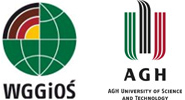Website: www.sednet.org
Compiled by: Marjan Euser (marjan.euser@deltares.nl)
Subscription Service: SedNet Secretariat (marjan.euser@deltares.nl)
Disclaimer: SedNet is not responsible for faults due to incorrectness of info in this newsletter.
Previous issues: www.sednet.org/newsletter
CONTENTS
New website SedNet
The website of SedNet has been renewed. Please have a look at www.sednet.org.
Some parts may be still under construction.
Feel free to email the SedNet secretariat about suggestions for uploading weblinks of international sediment activities.
9th International SedNet Conference, 23-26 September 2015, Krakow, Poland “Solving societal challenges; working with sediments”
Hosted and co-organized by the Faculty of Geology, Geophysics and Environmental Protection, AGH University of Science and Technology.

From 23-26 September 2015 the 9th International SedNet conference took place at AGH University in Krakow to which 130 sediment specialists participated from all over the world. In total 13 platform sessions, workshops and working group meetings were organised.
During the poster session, participants could vote for the best poster. The winners of the Poster Prizes are:
- First prize (500 €):
Dr. Jasmina Obhodas, Ruder Boškovic Institute, Croatia, with the poster “Bromine in the delta of the Neretva River environment and increased bladder cancer incidence” (for abstract see “4. Posters, miscellaneous issues, poster no. 32”). - Second prize (250 €):
René Barth, Wiertsema & Partners, the Netherlands, with the poster “In-situ sediment measurements for field trial in the port of Delfzijl ‘Manoeuvring with negative UKC’” (for abstract see “4. Posters, miscellaneous issues, poster no. 39”).
To get a quick impression of the outcome of the event we refer to the slides of the “Wrap-up” session at the end of the conference.
The abstracts of Presentations and Posters can be found on the website. Pdf’s of most presentations you will find there too.
Miscellaneous session reports, and copies of abstracts and presentations can be found here.
Sediment stories
Tell us your stories and inspire other people!
2015 is proclaimed as the International Year of Soils. The potential of soils and sediments to provide solutions for current societal challenges deserves to be put in the spotlight. On the website www.bodembewust.be you will find inspirational stories about the societal relevance of sediments.
At the Sednet Conference 2015 in Krakow, participants were asked to share their stories. Even if you could not attend the Sednet Conference, you are invited to take a look at the stories, reflect on your own inspiring experiences and send us your own stories via sediment-stories@ovam.be. The stories can take on different forms: from written words, to images, audio and movies.
First Workshop “Implementation of the ICPER Sediment Management Concept”, held on 28 May 2015, Prague, Czech Republic
Due to the effort of a German-Czech expert group, the ICPER Sediment Management Concept was released to create an impact on the second management cycle of the Water Framework Directive. The concept contains recommendations for a good sediment management practice within the international Elbe river basin for achieving supra regional objectives. It is available for download on the ICPER website. On 28 May 2015 under the aegis of the ICPER a workshop of the “Implementation of the Sediment Management Concept for the Elbe catchment area” took place in Prague in the Czech Ministry of Environment. The workshop focused on results of recently conducted studies, projects and future measures in Germany and the Czech Republic with regard to sediment pollution in the Elbe catchment area. It offered a number of suggestions that will feed into the ongoing implementation process of the sediment management concept. Following workshops will focus on other key elements of sediment management such as “quantity”, “hydromorphology” or “navigation”. Presentations are available at the ICPER website. A follow up is scheduled for spring 2016.
For more information visit: www.ikse-mkol.org
The ELSA-Project – an Instrument of the integrated contamination and sediment management in the Elbe catchment area
The investigation of contamination within the Elbe catchment area in the course of the first management plan of the EC Water Framework Directive (WFD) has shown that contaminated sediments of the Elbe and its tributaries significantly derive from secondary sources, which have an impact reaching out to the North Sea.
The relocation of sediments as part of maintenance works for navigation purposes, essential for the Port of Hamburg, is affected by upstream contamination of Elbe sediments.
An improvement of the sediment quality is only possible through a holistic sediment management in the whole Elbe catchment area which comprises in particular measures for the reduction of contamination in the upstream river catchment area.
For the promotion of this topic the project “Remediation of contaminated Elbe Sediments – ELSA” was set up in 2010 and extended in 2014. This project is a close cooperation of the Hamburg Ministry of Environment and Energy, the Hamburg Port Authority and the Hamburg Ministry of Economy. The most pressing interest from a Hamburg point of view is to initiate the straight improvement of the contamination levels in the Elbe – especially those of the sediments – and further give professional advice and if required financial support.
For more information about the ELSA-Project visit: http://elsa-elbe.de/.
Sediment Matters!
The book “Sediment Matters”, edited by Peter Heininger and Johannes Cullman and published by Springer, presents insights into the complex processes controlling sediment behavior in river basins and into state of the art integrated sediment management concepts. Main topics are: sediment transport, modelling sediment transfer in rivers, sediment quality, sediment monitoring and integrated sediment management at catchment scale. Interlinkages of sediment dynamics and quality with biogeochemistry, ecology, climate change and human activities are discussed. Drivers, boundary conditions and processes of erosion, sediment transport and sedimentation are presented with the aim to help the reader putting sediment quantity and quality issues into perspective. www.springer.com
Navigating a changing Climate
PIANC, the world association for waterborne transport infrastructure, launched this autumn an initiative “Think Climate”. The aim of this initiative is to reduce emissions, strengthen resilience, and adapt waterborne transport infrastructure.
Up to now about ten international organisations joined the initiative as coalition partner.
Other organizations, like SedNet, joined as “supporter-organisation”.
The Navigating a Changing Climate initiative has three main themes:
• encouraging owners, operators and users to take steps to reduce greenhouse gas emissions associated with waterborne transport infrastructure, and to shift to low carbon waterborne transport infrastructure and operations, wherever this is practicable and not disproportionately costly
• building adaptation capacity and supporting the owners, operators and users of inland and maritime navigation infrastructure as they strengthen resilience and prepare to adapt to changes in sea level, flooding extent or frequency, flow conditions, storminess, precipitation, temperature, extreme wind or waves or fog amongst others
• encouraging new ways of thinking about waterborne transport infrastructure with an emphasis on Working with Nature and on identifying sustainable, integrated solutions.
The latest version of the Position Paper, which sets out the objectives of the Navigating a Changing Climate initiative and summarises the activities proposed in the Action Plan, can be found here. The detail of the Action Plan can be found here.

Upcoming events
11-12 January 2016: 1st GLOBAQUA International Conference on aquatic ecosystems research, Freising, Germany.
www.globaqua-project.eu
22-26 May 2016: 26th SETAC Europe Annual Meeting in Nantes, France. On the program a session “Toxicity Testing in Sediments – Bioassays As Link Between Chemistry and Complex Benthic Community Testing for Sediment Quality Assessment” (chairs: Sebastian Höss, Ute Feiler) under the main topic: ET-Aquatic and terrestrial ecotoxicology).
For info on abstract submission see: http://nantes.setac.eu/
10-13 July 2016: 5th International Symposium on Sediment Management I2SM, Montreal, Canada.
www.i2sm.ca
4-7 September 2016: ECSA 56 symposium – Coastal systems in transition – Bremen, Germany. You are invited to propose and convene special organized sessions.
www.estuarinecoastalconference.com
19-22 September 2016: 13th International Symposium on River Sedimentation, Stuttgart, Germany. Held triennially since 1980; organised under the auspices of the International Research & Training Center on Erosion and Sedimentation (IRTCES).
www.isrs2016.de
27-28 September 2016: the 9th Rostock dredged material seminar will be hold prospectively on 27 to 28 September 2016, Rostock, Germany. Documents about the previous seminar can be found at
www2.auf.uni-rostock.de
October 2016: International Magdeburger Seminar on River Protection, to be held in in the city of Dresden, Germany. Main topics will be urban waters and its management.
www.ikse-mkol.org
Disseminated by:
SedNet secretariat:
Mrs. Marjan Euser
Deltares
P.O. Box 85467
NL-3508 AL Utrecht
The Netherlands
E-mail marjan.euser@deltares.nl

